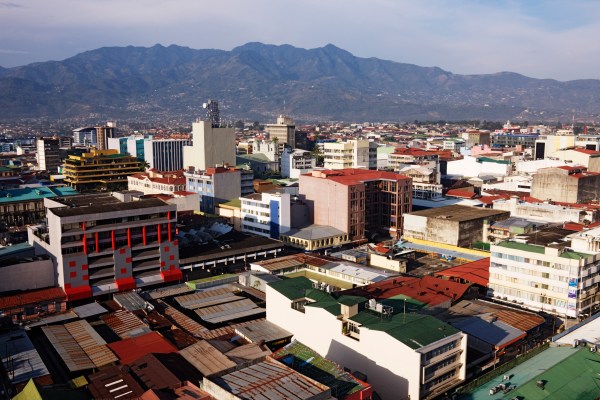Airbnb — the travel startup that lets individuals rent out private homes or rooms in private homes to people as an alternative to hotels — has racked up more than 17,000 nights in its Open Homes program, a voluntary effort where Airbnb hosts can offer their houses and rooms free of charge to people in cities going through an emergency such as a hurricane or flood or other critical incident, either because those people have been displaced from their homes or because they have come to an area to help family who are going through a crisis.
Now, the company is piloting a new version of the program to make it even more ubiquitous: Airbnb hosts, and anyone who might be willing to put up people in emergencies, can now register so that they will be available on “standby” lists.
The first city that will pilot the new system starting this summer is San Jose, California, and the plan is to roll it out to more cities during the rest of the year, and eventually globally.
The idea to expand Open Homes came out of Airbnb thinking about how to make its program more effective and responsive to crises. The company has in total hosted people in nearly 9,000 homes over 90 disasters, but it found that there was a gap in time between when something happened, and the days it would take to recruit volunteers to provide homes. Given the time sensitivity of the need, the company thought it could do something to be more prepared.
On the part of the city of San Jose, it became the first city to pilot the program for two reasons. It relied on Airbnb in 2017 to provide homes to people displaced during major flooding, where the city needed to evacuate and find accommodation for 14,000 families, so it understood the benefit of the program. And it generally has a larger impetus to get involved in more tech-led initiatives that better leveraged its own place in the heart of Silicon Valley.
“As you might expect, as the biggest city in Silicon Valley, we believe in working in collaboration with tech,” San Jose’s mayor Sam Liccardo said in an interview. “Tech has impacted and changed our economy, but we also know that there is an extraordinary opportunity in having a collaborative approach.”
San Jose and Airbnb have worked together before: the city worked with Airbnb on crafting a scheme for taxing hosts to collect visitors’ taxes that were on par with what visitors paid when staying in hotels, and Liccardo noted that this became a template for how Airbnb worked out similar taxes in other cities.
While flooding was the reason Airbnb provided Open Homes in San Jose, Liccardo said that earthquakes are by far the more worrisome natural disaster that San Jose wants to be prepared for down the line.
Kellie Bentz, Airbnb’s Head of Disaster Response and Relief, says that the company has been working with relief organizations up to now to help coordinate housing options. This new phase of Open Homes will bring it into closer contact with city governments to develop programs.
While exact details will be worked out, Airbnb and cities will work together to get the message out to people, since the idea is to appeal to people beyond Airbnb’s own network of hosts. This will include public service announcements and in-person sessions where people can come and learn more about hosting during critical incidents, where they may not get paid, but Airbnb might provide some degree of cost covering for the efforts. Setting up networks of potential hosts ahead of time will allow Airbnb to have more comprehensive data on individual hosts and what their particular offerings and restrictions might be.
Bentz is very quick to say that the purpose behind this program is not to cosy up to city governments, or to simply expand its network of regular hosts. But I’d point out that both do happen to be potential (if unintended) side effects. City governments have not always been in harmony with Airbnb, which has run afoul of some local regulations that have been built for hotels and in some cases are only now being modified to account for Airbnb’s brand of travel accommodation. This gives Airbnb a place as not a disruptive aggressor, but a help. In the case of hosts, there have been plenty who have stayed at Airbnb’s but are reluctant to open up their own homes, and this gives the company a way of introducing the concept in a less all-in way. (Although, to be very clear, the company says it is not expanding this program for either of these reasons. “If we weren’t doing this with integrity, I would not be here,” Bentz said.)
While the idea is to bring in more than just Airbnb hosts as emergency accommodation volunteers, so far Airbnb hasn’t worked with any other networks that provide a platform to home owners to rent out their places, such as HomeAway. “We would be open to those conversations,” said Bentz. “But so far we have not had interest from them.”
